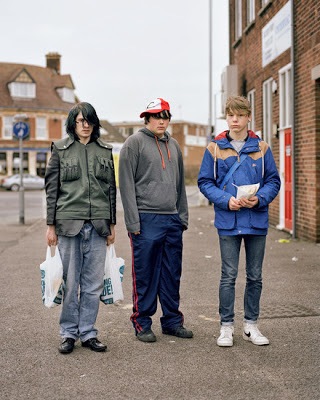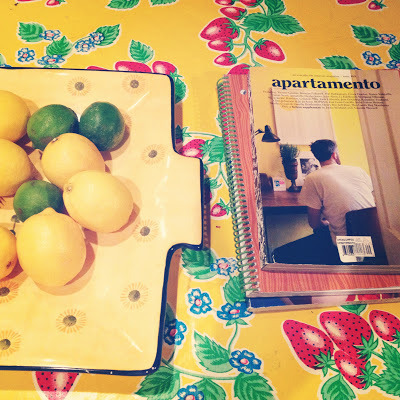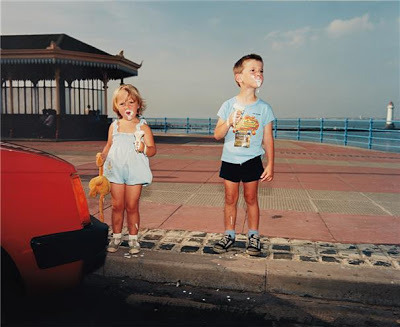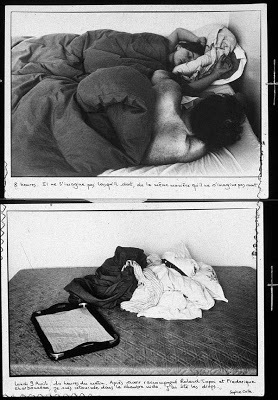Erica Lorraine Scheidt's Blog
August 4, 2014
Interview with Erica Lorraine Scheidt
"I was frustrated with a certain pattern, it’s the: adolescent girl has some trauma (loses a sibling, is raped) and then starts down a self-destructive path (bulimia, cutting, drugs), then she meets someone (sometimes a teacher, sometimes a coach, often a boyfriend) and finds something (long distance running, art, love) that helps her understand her inner strength, and she moves on trope. So much of adolescence is uneven, and growth is not always forward; sometimes it’s a cluster of awarenesses and sometimes it’s a sequence of setbacks and sometimes you have to trust yourself and sometimes that’s a terrible idea." from an interview at le project d'amour http://hila-lumiere.blogspot.com/2014...
Published on August 04, 2014 09:15
•
Tags:
uses-for-boys
October 31, 2013
sharing a coke with you
 Sigh. La Garconne. My imaginary self is wearing this right now.
Sigh. La Garconne. My imaginary self is wearing this right now.
Published on October 31, 2013 08:24
September 25, 2013
stories give us a way
 Q. Some have argued that Uses for Boys should not be considered YA because of it’s mature themes. While I disagree with this statement, I’m interested in hearing your thoughts on this.
Q. Some have argued that Uses for Boys should not be considered YA because of it’s mature themes. While I disagree with this statement, I’m interested in hearing your thoughts on this.A. I have no problem with YA that makes adults uncomfortable. We’re uncomfortable talking about sexuality in whatever form. But half of high school age students are having sex and it’s not all fade to black. It’s good or bad or sublime or mediocre or it can be terrible and violent, but it’s happening and I think that stories give us a way to talk about the stuff that’s hard to talk about. From an interview with Rachel Reads. Also: there's an international drawing for Uses for Boys.
Photo by William Lakin via Mark Peter Drolet
Published on September 25, 2013 11:38
July 20, 2013
flood the bathroom and burn the eggs
 Christina was in a difficult position. She had chosen to build a relationship with a single parent, which meant she was having a relationship with two people. It takes a very special person to do this: someone who has the courage to speak and let their voice be heard, but also the sensitivity and confidence to know when to let things go. And the emotional risks of getting involved with someone who has a child are much greater, for in the event of discord you lose not one but two people. You have to negotiate with two personalities at the same time and suffer the loneliness of sometimes feeling like an outsider, because the truth is you are – at least at the beginning. From Now we are three: my daughter and my new fiancee by Simon Van Booy in the Guardian
Christina was in a difficult position. She had chosen to build a relationship with a single parent, which meant she was having a relationship with two people. It takes a very special person to do this: someone who has the courage to speak and let their voice be heard, but also the sensitivity and confidence to know when to let things go. And the emotional risks of getting involved with someone who has a child are much greater, for in the event of discord you lose not one but two people. You have to negotiate with two personalities at the same time and suffer the loneliness of sometimes feeling like an outsider, because the truth is you are – at least at the beginning. From Now we are three: my daughter and my new fiancee by Simon Van Booy in the Guardian Photo by Nicholas Haggard
Published on July 20, 2013 11:19
July 9, 2013
summer
 It's always like this, isn't it? Waiting for summer, waiting for summer, waiting for summer and then, boom: picnics, popsicles, mosquito bites; when did it begin? I switched readers, but somehow the whole blogging thing has changed, right? And tumblr is wholly unsatisfying. I think I'm feeling sentimental because in two days, The Summer Workshop starts with nineteen writers (ages 14-18) and nine generous guest authors and free pizza from our neighbors and free bagels from our other neighbors and I'm just feeling so damn grateful.
It's always like this, isn't it? Waiting for summer, waiting for summer, waiting for summer and then, boom: picnics, popsicles, mosquito bites; when did it begin? I switched readers, but somehow the whole blogging thing has changed, right? And tumblr is wholly unsatisfying. I think I'm feeling sentimental because in two days, The Summer Workshop starts with nineteen writers (ages 14-18) and nine generous guest authors and free pizza from our neighbors and free bagels from our other neighbors and I'm just feeling so damn grateful.Photo: mine
Published on July 09, 2013 10:10
June 8, 2013
in the midst of all their shortcoming
 When I hear myself praising a book these days, the things I seem to be really appreciating is a fearlessness when it comes to compassion and sincerity, as well as a willingness to examine questions of faith (and by that I neither mean, not exclude, questions of religion.) In other words, I have reached an age where I am no longer at all impressed with the snide, the cold, the condescending, unless it is paired or mitigated by the opposite, the hopeful in the face of all odds, the reaching after the ineffable, the love. My favorite book this year so far is George Saunder’s The Tenth of December, because for all its razor sharp social commentary, for all the ways he shows us to ourselves with a devastatingly relentless and honest eye, he brings this wave of compassion and love behind that critique. No characters seem more in need of love than the characters in The Tenth of December, and he loves them unconditionally, in the midst of all their shortcoming, all their flaws. Pam Houston in Tracking Wonder
When I hear myself praising a book these days, the things I seem to be really appreciating is a fearlessness when it comes to compassion and sincerity, as well as a willingness to examine questions of faith (and by that I neither mean, not exclude, questions of religion.) In other words, I have reached an age where I am no longer at all impressed with the snide, the cold, the condescending, unless it is paired or mitigated by the opposite, the hopeful in the face of all odds, the reaching after the ineffable, the love. My favorite book this year so far is George Saunder’s The Tenth of December, because for all its razor sharp social commentary, for all the ways he shows us to ourselves with a devastatingly relentless and honest eye, he brings this wave of compassion and love behind that critique. No characters seem more in need of love than the characters in The Tenth of December, and he loves them unconditionally, in the midst of all their shortcoming, all their flaws. Pam Houston in Tracking WonderPhoto: Martin Parr, The Last Resort (Merceyside), 1983-1986 via Old Chum
Published on June 08, 2013 05:41
June 7, 2013
jazz
 One, really? I could do five with some level of comfort, but one is nearly impossible. But if I have to do one I guess it has to be Toni Morrison’s Jazz. It both took off the top of my head and became the axe for the frozen sea within me. It completely exploded whatever notion I had about the limits of what was possible in a novel and made me understand that radical intelligence and radical empathy were not—as my grad school professors had insisted—mutually exclusive. Pam Houston in Tracking Wonder
One, really? I could do five with some level of comfort, but one is nearly impossible. But if I have to do one I guess it has to be Toni Morrison’s Jazz. It both took off the top of my head and became the axe for the frozen sea within me. It completely exploded whatever notion I had about the limits of what was possible in a novel and made me understand that radical intelligence and radical empathy were not—as my grad school professors had insisted—mutually exclusive. Pam Houston in Tracking WonderPhoto by Pam Houston
Published on June 07, 2013 06:36
April 12, 2013
a private river
 The best memoirs—like This Boy’s Life, or Crazy Brave [by Joy Harjo], for instance—bring you through a private river of storytelling that joins a major ocean of human struggle and joy. Lidia Yuknavitch. From The Rumpus Interview withElizabeth Scarboro and Lidia Yuknavitch by Roxane Gay.
The best memoirs—like This Boy’s Life, or Crazy Brave [by Joy Harjo], for instance—bring you through a private river of storytelling that joins a major ocean of human struggle and joy. Lidia Yuknavitch. From The Rumpus Interview withElizabeth Scarboro and Lidia Yuknavitch by Roxane Gay. Photo: Untitled, Dayton, Ohio 2013 by Joey Bolender via oldtimefriend
Published on April 12, 2013 10:14
March 23, 2013
closer to the reason
 What made Madeleine sit up in bed was something closer to the reason she read books in the first place and had always loved them. Here was a sign that she wasn’t alone. Here was an articulation of what she had been so far mutely feeling. In bed on a Friday night, wearing sweatpants, her hair tied back, her glasses smudged, and eating peanut butter from the jar, Madeleine was in a state of extreme solitude. The Marriage Plot, Jeffrey EugenidesHome of Brian W. Ferry on Sight Unseen via Lena Corwin
What made Madeleine sit up in bed was something closer to the reason she read books in the first place and had always loved them. Here was a sign that she wasn’t alone. Here was an articulation of what she had been so far mutely feeling. In bed on a Friday night, wearing sweatpants, her hair tied back, her glasses smudged, and eating peanut butter from the jar, Madeleine was in a state of extreme solitude. The Marriage Plot, Jeffrey EugenidesHome of Brian W. Ferry on Sight Unseen via Lena Corwin
Published on March 23, 2013 11:53
March 22, 2013
less strict
 CALLE: He began by telling me that he loved my work but that many of my shows looked like open books on the wall.NERI: That’s a provocative criticism to make to an artist who has always worked with words and images. You are a distinctive writer, much admired in literary circles.CALLE: Daniel [Buren] said this after he visited my house and saw my walls [The walls of Sophie’s house in Paris are adorned with groupings of artworks and artifacts]. He thought they were more playful and free than many of my shows. His criticism wasn’t about my writing—it was that for many works, I chose one format and repeated it many times. He wanted me to be less strict. As a result, I had much more fun in Venice. I played so much that I was even afraid to be too much like a student who wants to experiment with everything! Sophie Calle with Interview MagazineLes Dormeurs, 1979, Sophie Calle
CALLE: He began by telling me that he loved my work but that many of my shows looked like open books on the wall.NERI: That’s a provocative criticism to make to an artist who has always worked with words and images. You are a distinctive writer, much admired in literary circles.CALLE: Daniel [Buren] said this after he visited my house and saw my walls [The walls of Sophie’s house in Paris are adorned with groupings of artworks and artifacts]. He thought they were more playful and free than many of my shows. His criticism wasn’t about my writing—it was that for many works, I chose one format and repeated it many times. He wanted me to be less strict. As a result, I had much more fun in Venice. I played so much that I was even afraid to be too much like a student who wants to experiment with everything! Sophie Calle with Interview MagazineLes Dormeurs, 1979, Sophie Calle
Published on March 22, 2013 11:04



